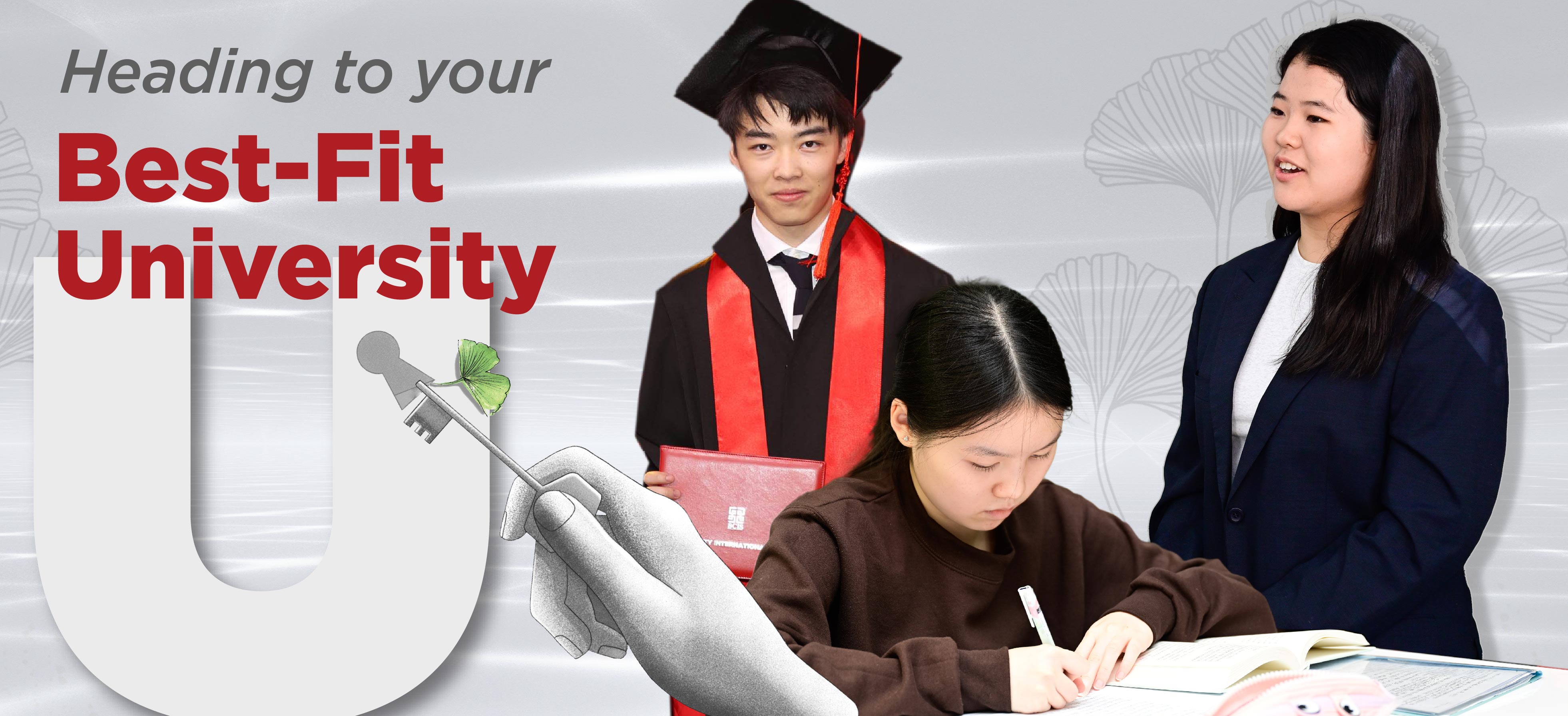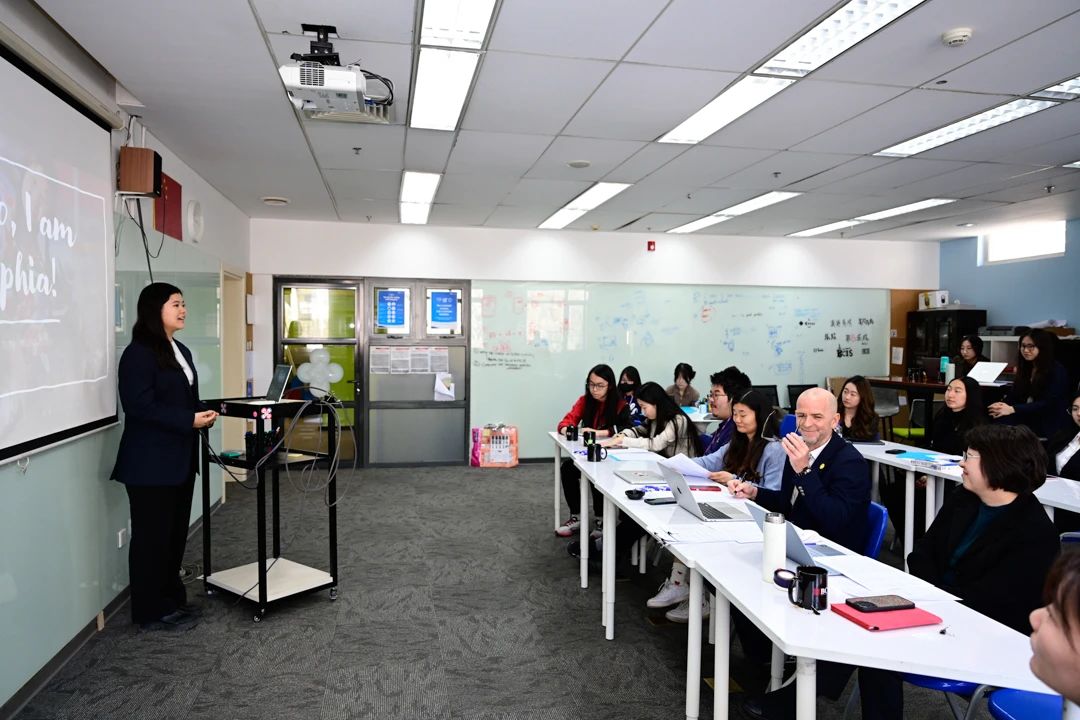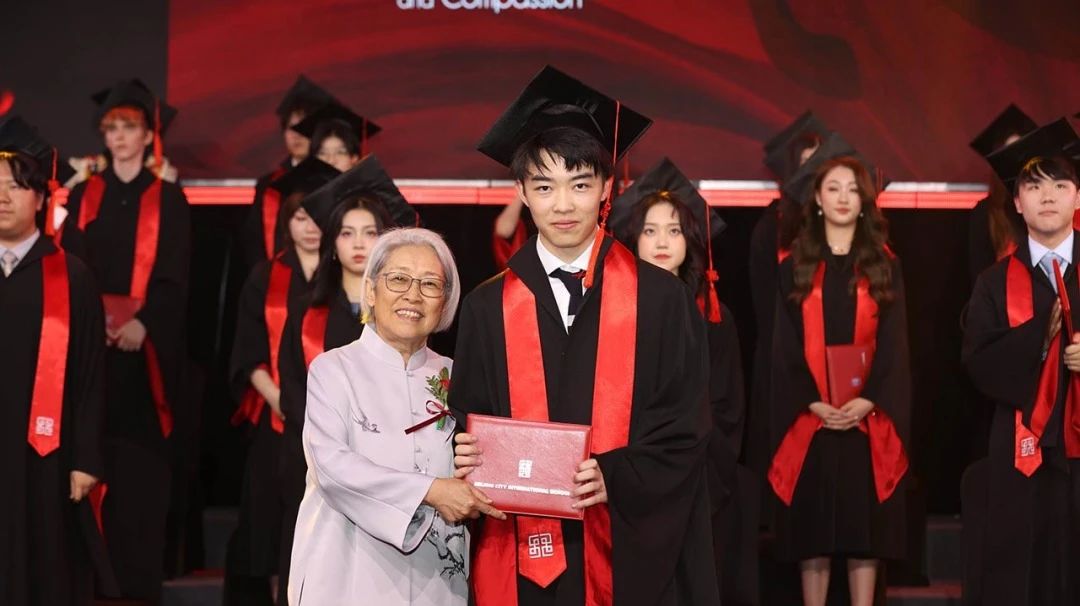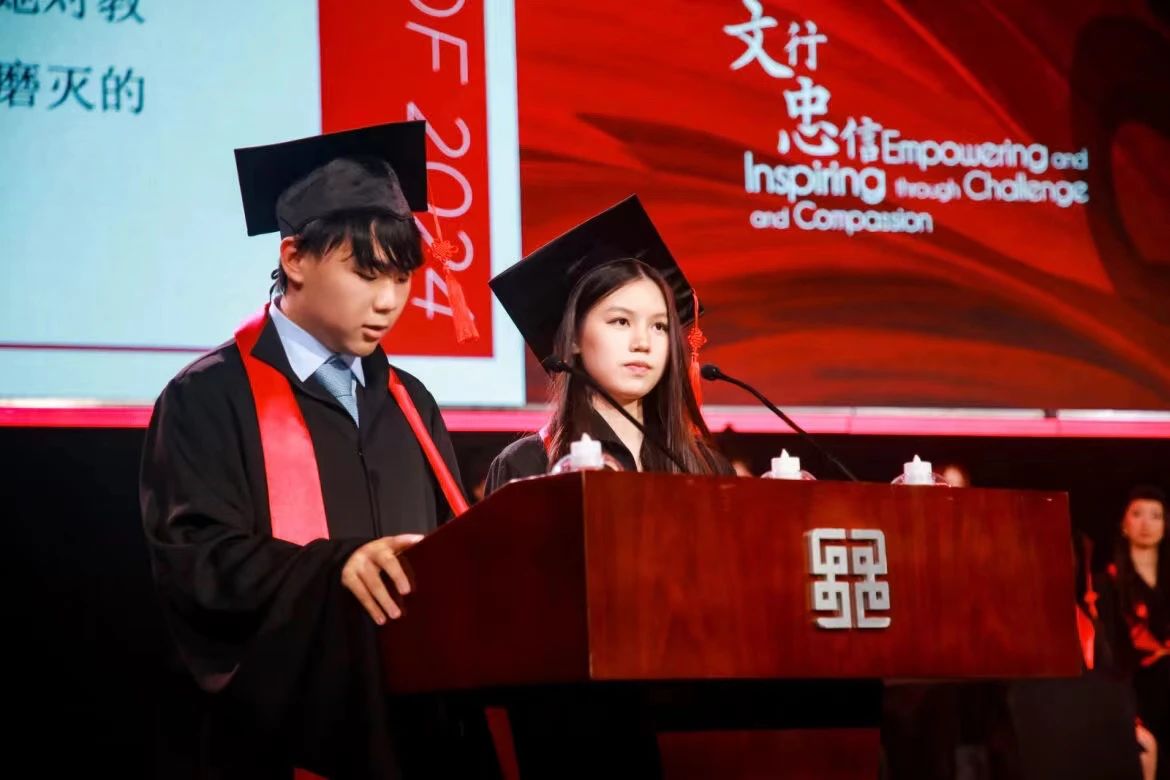News
Jun 14 2024
Heading to your "best-fit" universities!
Cecilia PEI
As the QS University Rankings for 2025 are released, the debate over which universities are truly the "best" in the world reignites. Comprehensive rankings, academic reputation, and employment rates—each metric is critically important to both students and parents.
During the 2024 graduation season, we delve into the application journeys of BCIS graduates, finding that every university choice is supported by a story of both passion and careful consideration. Join us in exploring these graduates' stories and discovering what a "best-fit" university looks like through their eyes!

When discussing her best-fit university, Sophia, an aspiring medical student, highlighted how purposeful she was in selecting her major and school. From a young age, she and her mother had always been around various charitable organizations, fostering a strong desire to help others, and eventually saw medicine as the ideal path to fulfill this passion.
Since joining BCIS in fourth grade, the student-led learning environment provided numerous hands-on opportunities for her to gain real life experience in her passion, whether that be by heading the autism support club ‘Unlock’, fundraising for disadvantaged children through the Help A Child Smile project, or participating in services for the Migrant Children’s Foundation. These experiences heightened Sophia’s awareness of the challenges faced by marginalized groups in society and deepened her understanding of conditions like autism. More importantly, they nurtured her empathy, the driving force behind her pursuit of medicine.

The IB curriculum provided Sophia with the opportunities to delve into medicine independently, as during the Diploma Programme, she was able to conduct research on a topic of her interest, exploring the effects of psychoactive drugs on neurotransmitters in a simulated human brain. Sophia has acknowledged the significant academic challenges, as well as the feelings of accomplishment, associated with studying medicine, stating, "I once contemplated switching to business, but as I struggled to maintain focus while reading economics books outside of class, it made me realize my true passion, which lies in the pages of anatomy encyclopedias." She added.
"Studying medicine is undeniably challenging, but pursuing a subject you're not genuinely passionate about is even more daunting." This conviction sustained her throughout the application process, culminating in her acceptance at University College London (UCL), renowned for housing one of the UK's premier medical schools.
When describing what her “best-fit” university would look like, Sophia depicted a nurturing environment akin to a second home, with healthy and robust social networks, abundant educational resources, and unwavering support. She recounted her experience at the Asian Cardiology Conference, where she found herself captivated by the insights of UCL professors into artificial bypass techniques. Discovering that her Applied Medical Sciences program would be conducted at the Royal Free Hospital further solidified her decision to choose UCL. "While specializing in clinical practice allows me to aid individuals," she remarked, "engaging in research enables me to impact entire communities." Sophia's enthusiasm for UCL stems from its blend of practical coursework and ample research opportunities, promising an exciting journey in her pursuit of medicine.

Facing thousands of university choices globally, some prefer the long-established, top-ranked comprehensive universities for their assured academic excellence. Others lean towards smaller liberal arts colleges, drawn by their immersive learning experiences, strong sense of community, and rich research opportunities. Amidst the 2024 application season, graduating student Jeremy achieved remarkable success in applying to liberal arts colleges, as he shares his story with us.
This year, Jeremy received admission offers from several top 30 universities in the US, including Carnegie Mellon University and the University of Florida. Out of the array of well-known, big-name institutions, Jeremy ultimately chose Grinnell College — a discreet, top-tier liberal arts college nestled in a serene locale, renowned for its excellence in biology and chemistry.
Reflecting on his academic journey at BCIS, Jeremy mentioned how interdisciplinary courses gradually solidified his passion for chemistry and related fields. In other academic frameworks, chemistry might have seemed somewhat dry, Jeremy noted. However, the integration of chemistry, physics, and biology in MYP science classes brought a fresh learning experience. In IBDP classes, conducting experiments of professional researcher standards, participating hands-on, and independently drafting research reports further increased Jeremy's interest and passion. Acting on his teachers' advice, he engaged in a summer school research project on ibuprofen's chemical composition, accumulating research experience and impressing college admissions officers with his proactiveness.
Jeremy's past learning experiences have crystallized his future pursuits and goals. "What suits yourself is the best," he remarked. "Compared to larger universities, Grinnell College boasts much smaller class sizes and great student-to-faculty ratios, offering more opportunities for communication and collaboration with professors." Jeremy believes that Grinnell undeniably provides the most immersive academic environment and professorial networks, serving as an excellent springboard for advancing to higher degrees.

Transitioning from the British education system to BCIS, Lucia initially opted for British universities. However, she later found the flexible curriculum and open academic atmosphere in the US more aligned with her aspirations and personality, valuing the diverse opportunities available in the American educational system. Reflecting on her time at BCIS, Lucia fondly remembers how the school’s own flexible learning environment enhanced her learning experience. Her keen interest in finance and business drove her active participation in multiple student and community-led business competitions. Additionally, attending a summer school at the Wharton School (of the University of Pennsylvania) alongside classmates allowed her to gain valuable insights from business experts. Beyond just academic enrichment, Lucia has also developed a greater awareness of impacting the broader world, mentioning the "Infinite Project” that she initiated with community members, in which they organized performances with students from other international schools in Beijing, successfully raising over 6000 yuan in tuition fees for two underprivileged girls.
In Lucia’s eyes, the IB curriculum is future-focused, fosters exploration, and shapes well-rounded individuals. As a globally recognized curriculum, its application transcends specific regional universities and provides students with a wider range of possibilities. While Lucia is still deliberating her final college choice, she believes that whether she pursues further degrees, takes a job locally, or returns to China, she hopes this university can pave the way for infinite future possibilities.
So when we are considering what makes a university the “best" BCIS’s ability to truly empower each student to pursue their passions and future life paths is the key which guides them to making the best decisions they can. As graduates share their application stories, openly expressing they have found what is the "best-fit" for them in terms of university and location, they are prepared for action, ready to bravely and confidently take their next steps!




